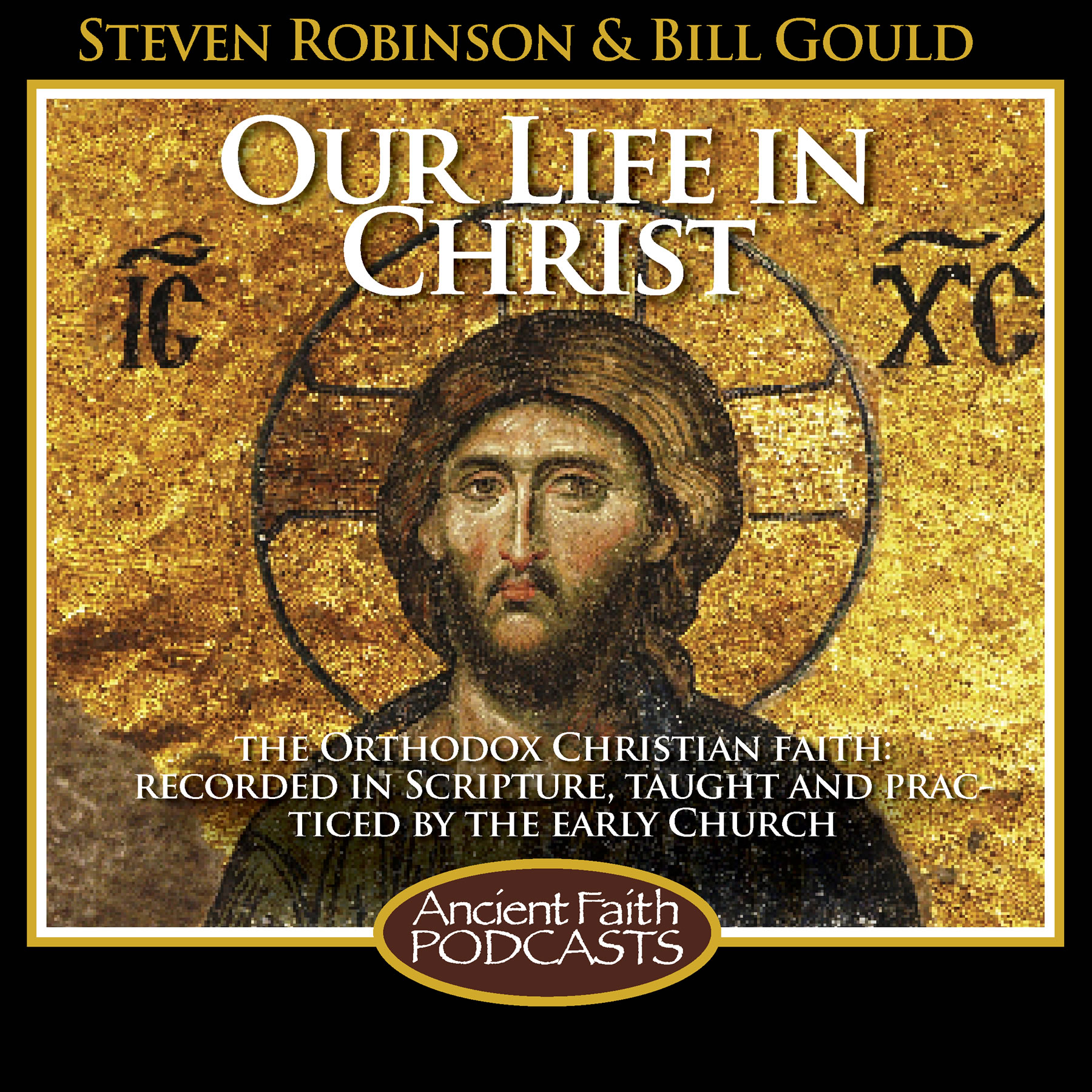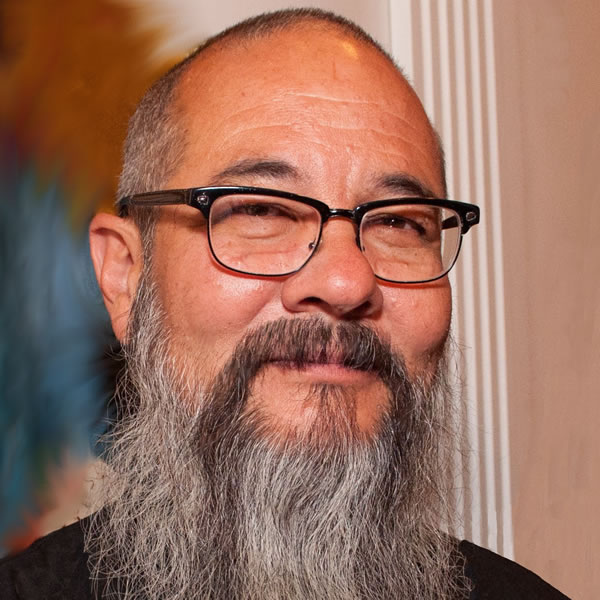Our Life in Christ
Liturgical Worship: In Spirit and Truth?
Monday, May 19, 2014
Listen now DownloadSupport podcasts like this and more!
Donate NowTranscript
Dec. 6, 2004, 9:48 a.m.
Program Notes - December 5, 2004
Liturgical Worship: In Spirit and Truth?
- WORSHIP
- John Burkhart
- It is a scarce wonder, no wonder at all, that in a society dedicated to consumerism people ask,
- "What can I get out of worship?" As if getting something out of everything expresses an appropriate response toward life! The question of worship, when so stated, does not take God seriously. It does not ponder the true worth of God, for to treat God as if He were a means to OUR ends is to imagine that we ourselves are gods. God is not humanity’s servant. (John Burkhart, Worship, p.15, Westminster Press, 1982).
- What matters is not whether God can be God without our worship, but whether we can be human beings without worshipping God. (p. 18)
- Ortho-doxy is "RIGHT GLORY" or right worship. Worship God in Spirit and Truth = Right worship defines right belief.
- Jesus’ Prayer at the Last Supper was the Berakoth, Jewish prayers of thanksgiving. Jesus was not "winging it" at the Last Supper. Christ Himself did not see a conflict between "liberty in the Spirit" and ritual, liturgical prayers.
- We do not need Bible verses to tell us to surround worship with ritual and ceremony any more than we need verses to tell us to procreate or eat. The REAL question is: How can we NOT surround worship with ceremony and elevate it above our common daily experiences?
- Symbolism and Ritual
- Ritual in life:
- Thanksgiving Dinner/ Christmas: It’s the same every year! Turkey, dressing, cranberry sauce,
- Christmas trees, wreaths, red candles, etc. Sameness = special!!! Predictability IS what sets the seasons apart. ALL RITUAL, "meaningless": food, trees, ornaments, decoration….nothing utilitarian.
- Dogs and humans share birth, procreation and death. Only "modern" people "elevate" these events to the level of the dog: birth/killing the unwanted runt, wanton copulation without ceremony, killing the old and infirm.
- What distinguishes humans from dogs? RITUAL.
- Birth: Biology vs. Ritual: What does cigars, pink and blue, Sesame Street wallpaper, cake, candles, funny hats, the SAME song ALWAYS sung at the same time every year, giving gifts, etc add too the biology of existing one more year? Why one year? Why not daily?
- Procreation:
- Dating: Dress up. Bring flowers. Eat goofy food. Roxsand’s restaurant: HIGH mealtime ritual.
- Weddings: Dresses, tuxes, flowers, processions, music, rings, unity candles, SAME prayers, admonitions etc. Champagne, Decorating the car, throwing rice….Even the most austere wedding is ritual.
- Anniversaries: Try missing one….. 25th and 50th Silver and Gold, why??
- Death: Dress in black, solemn gatherings (why do people whisper at funerals? The dead person can’t hear anyway….), memorabilia, flowers, hearses (why not pickups?) 21 gun salute, etc. Just because biology ceased to function?
- Ritual is at the core of humanity. The more important the relationship the MORE we surround the significant events around that person with ritual. The more we love, the more we ritualize. TOTALLY NON FUNCTIONAL BUT VIRTUALLY INDESPENSABLE TO RELATIONSHIP.
- LIFE IS RITUAL: Graduations, medals, badges, colors of school football uniforms, fight songs, handshakes, what clothes to wear, table settings, wrapping stuff, PHYSICAL WORLD is inseparable from the philosophical/spiritual world in our heads. PHYSICAL WORLD IS NOT A TRAP.
- HOW MUCH RITUAL IS ENOUGH? HOW MUCH IS NOT ENOUGH? THE MORE IMPORTANT THE EVENT THE MORE RITUAL WE SURROUND IT WITH.
- Protestant symbolism and ritual: The evangelical protestant world has virtually denied this aspect of humanity. SUBTLE DUALISM: The material world is less "spiritual" than the "spirit"
- "God must be worshipped in spirit and in truth". Interpreted to mean "In my head and heart" and not in "ritual and robes". But what IS spirit? What is Truth?: Jesus became flesh. The material world IS spiritual, truth IS flesh, truth IS material. YOUR HEAD AND HEART ARE MATERIAL!!!!\
- INCARNATION: the bringing together (summing up of ALL THINGS in Christ, the things in heaven and the things on earth". There is no longer the fallen order of MAN AGAINST CREATION, but creation is united once again in Christ. WE RENOUNCE THE FALLEN ORDER BY BEING SPIRITUAL IN OUR BODIES AND SPIRITS: We bow both our bodies AND hearts, the outer gestures, acts and rituals
- Teach the inner man the Truth: We are saved body soul and spirit. Gnostics, Buddhists, Platonists belittle the flesh, the Hedonist, Egotist and Humanist are slaves to it. Both are wrong. Only in Christ is the flesh united to the spirit.
- BOWING: Orthodox practice. Jewish practice/Roman Practice.
- Bowing was present as respect from the beginning. Lexicon: OT:
- Protestants will bow their heads while praying at a meal. WHY? Does God hear better if you are talking into your food? Why don’t we bow before the name of God? Because it LOOKS pagan?? BOWING IS NOT THE ISSUE: WHO YOU ARE BOWING TO IS. BECAUSE THE GLUTTON OVER EATS WE DO NOT EAT AT ALL?
- Protestant symbolism: Table in front of Church for Lord’s Supper. Stained glass windows. Gold on edge of Bibles. Pulpit in the center of stage with pews facing forward. Raising hands. Closing eyes.
- CAN’T WEAR A CROSS BUT CAN WEAR A WEDDING RING?
- REAL QUESTION: Is "ritual" anti-gospel? Is LACK OF RITUAL MORE GOSPEL-ISH?
- Does ritual cloud the gospel or proclaim it? Is standing/ sitting/ kneeling/ bowing/ robes/ candles/colors etc., necessary? Are they evil? Why is "rational discourse the only "true" way of communicating or knowing God? Is it an "either/or?" CAN WE GET AWAY FROM RITUAL? NO. How much ceremony we surround an event with is directly related to how important that event is to us. To strip ritual from important relationships is to return to the level of the beast, not an elevation of the Image of God.
- DON’T WANT A DROUGHT TO PREVENT A FLOOD: Don’t do away with ALL ritual to protect us from being ritualistic, ALL symbolism to keep us from idolatry.
- Is God present in the simplicity of the living room? Yes, but that does not mean He CANNOT be present in the cathedral too. Even the simplicity of the Mennonite/Quaker building is a ritual statement. If they bought a bar or a strip joint as a Church, they would remodel it. SO PHYSICAL SURROUNDINGS ARE IMPORTANT.
- The person who leaves his hat on in a place you are supposed to take it off has "made a ritual statement" about what he believes about that place.
- POSTMODERNISM’S INFLUENCE ON WESTERN WORLD
- What IS post modernism if not pure subjectivism, daily reconstruction of reality based on what is PC or vogue or purely self-willed fancy all to the end of defining reality to suit …The BIG question is: IS there objective truth?
- The problem with this is: who is to judge whether or not a man individually has heard the voice of God 1. really, 2. accurately, or 3. is not demonically deceived into THINKING he has heard it. Your friend's problem is that he has not thought out the logical end of his positions. If he REALLY believes this stuff he might as well pull the covers over his head and be his very own god, church and savior, which he might be...
- QUESTION: If your friend is a true post-modern, I am sure he will be quick to agree that any "truth" cannot be proven -- only experienced. That is one thing with which we can wholeheartedly agree, can we not?
- One quick question--how can this be used to help in seeing that something is more or less rue than something else? In other words, to a rationalistic mind, this experiential aspect of truth has led to multi-culturalism, pluralism ad-nauseum; he asserts that the Hindu feels that it is he that has experienced truth, as Muslims feel that it is they, and so on.
- Dear Ephrem,
- Here's an excerpt from an article in Christianity Today magazine:
- Keroularios's list accuses Latins of, among other things, using unleavened bread in the Eucharist, eating unclean meats, shaving, adding "and the Son" to the Nicene Creed (the "filioque" clause), forbidding priests to marry, allowing bishops to wear rings, and baptizing with only one immersion. Keroularios sums up by saying, "Therefore, if they live in such a way and, enfeebled by such customs, dare these things which are obviously lawless, forbidden, and abominable, then will any right-thinking person consider that they are at all to be included in the category of the orthodox? I think not."
- In the lists, we see one of the main differences between Western and Eastern thought. Latin anti-heretical works focused on doctrinal differences, but to Greeks, Kolbaba writes, "It is the things these 'Romans' do—not what they believe and teach—that place them beyond the pale." To Latins, practice, including liturgy, is an outgrowth of doctrine and therefore secondary; to Greeks, practice shapes belief and is therefore of ultimate importance. Given this wholly different mindset, Westerners tend to look at the Byzantine lists and see complaints so odd, so trivial, that they must mask something else. Kolbaba looks and argues, "To say that such matters are petty or trivial reflects a very modern and very intellectual bias. Why are we so sure that the doctrinal content of a religion is more important, more central, and more characteristic than its ritual and normative content?" http://www.christianitytoday.com/history/newsletter/2000/sep15.html
The core of the issue is in the Trinity and man created in the image of God. The image of God is NOT individualism, it is person-hood fulfilled in communion. Truth is experienced, yes, by persons, but NOT as mere individuals. Part of experiencing Truth is experiencing Trinitarian life as the fulfillment of our person-hood and movement away from individualism which is death. This is why Truth is experienced IN THE CHURCH, which is the Body of Christ, a community/communion. We do not experience Truth individually THEN decide which church fits our "personal revelation" or subjective experience. It is a dynamic: the Church does not "define" Truth for us, but we experience Truth within the community of believers who collectively submit themselves to Christ as Head and to one another and the dogmas and teachings are the record of what has been revealed and experienced of the Trinitarian life within the life of the Church in which individuals lose their "individuality" but find their true "person-hood" in God.
Ephrem Christopher Walborn wrote:
He's still stuck in a mode where he cannot trust anything that came from man, and so he trusts himself by default.
I guess I would ask him this: "If you can be brutally honest with yourself, how good of a god do you make? and would you trust that god?" That is the position he is in.
About
Our Life In Christ brings you the orthodox Christian faith as recorded in Scripture, taught and practiced by the early Fathers of the Church, and preserved within the spiritual life of the Orthodox Christian Churches around the world. Join program hosts Steven Robinson and Bill Gould for an hour of insightful discussion about Orthodox Christian faith and practice. We record the program in Steve’s basement lair, and distribute it here as a podcast, broadcast it on Ancient Faith Radio, and archive it on Our Life in Christ’s website. For more information about Our Life in Christ, visit OurLifeinChrist.com.
Contributors

 Steve Robinson
Steve Robinson
 Bill Gould
Bill Gould